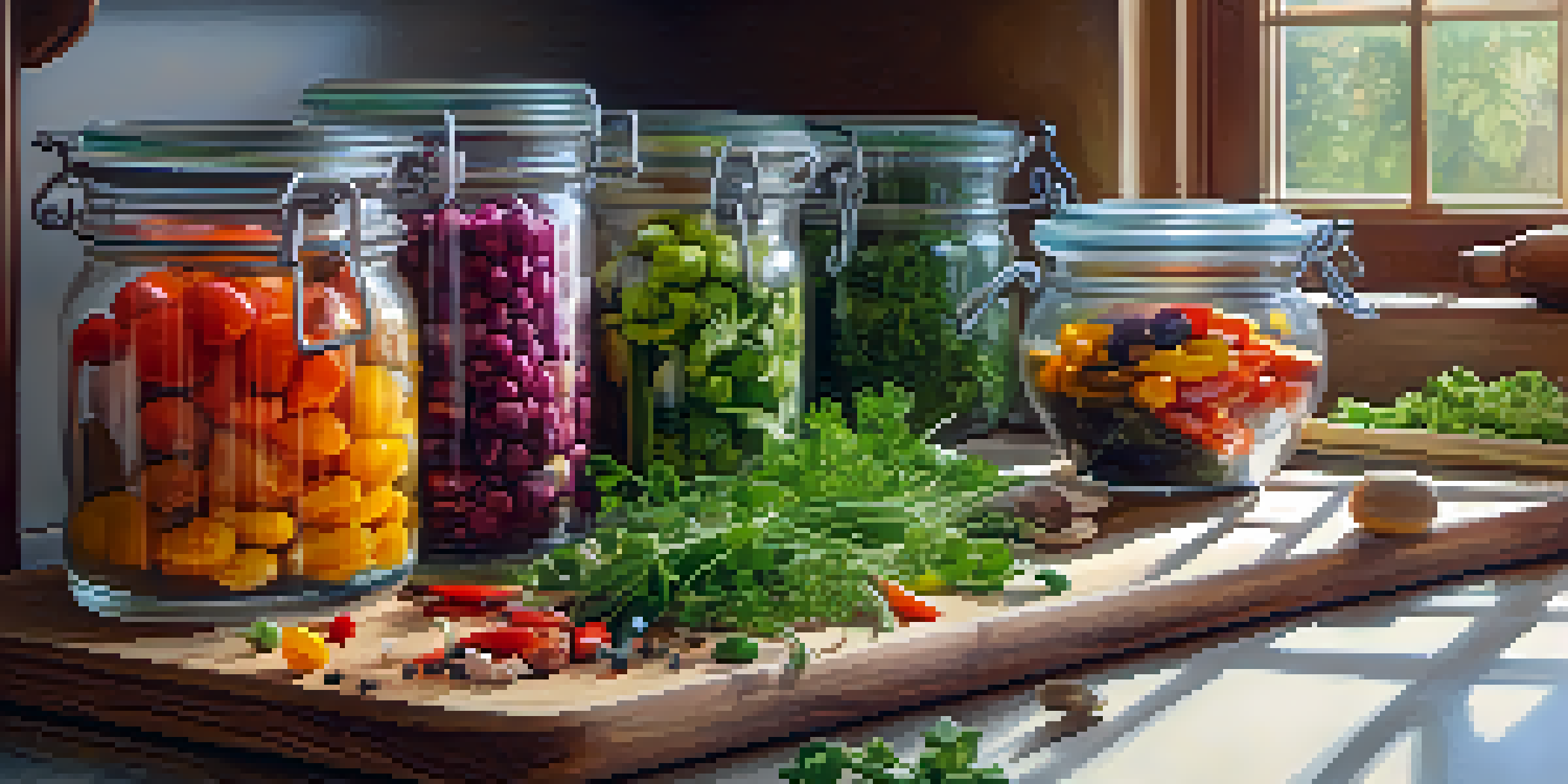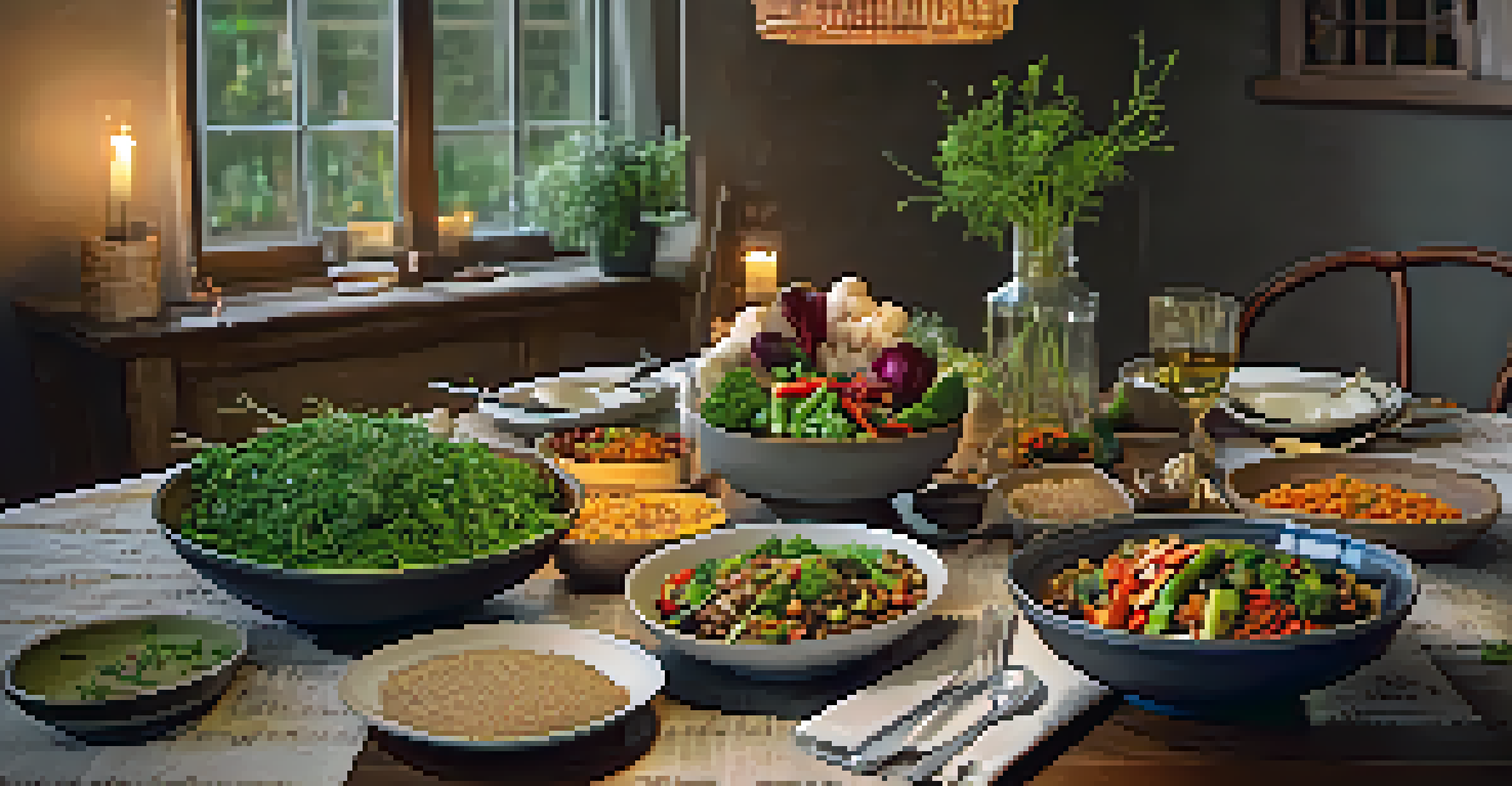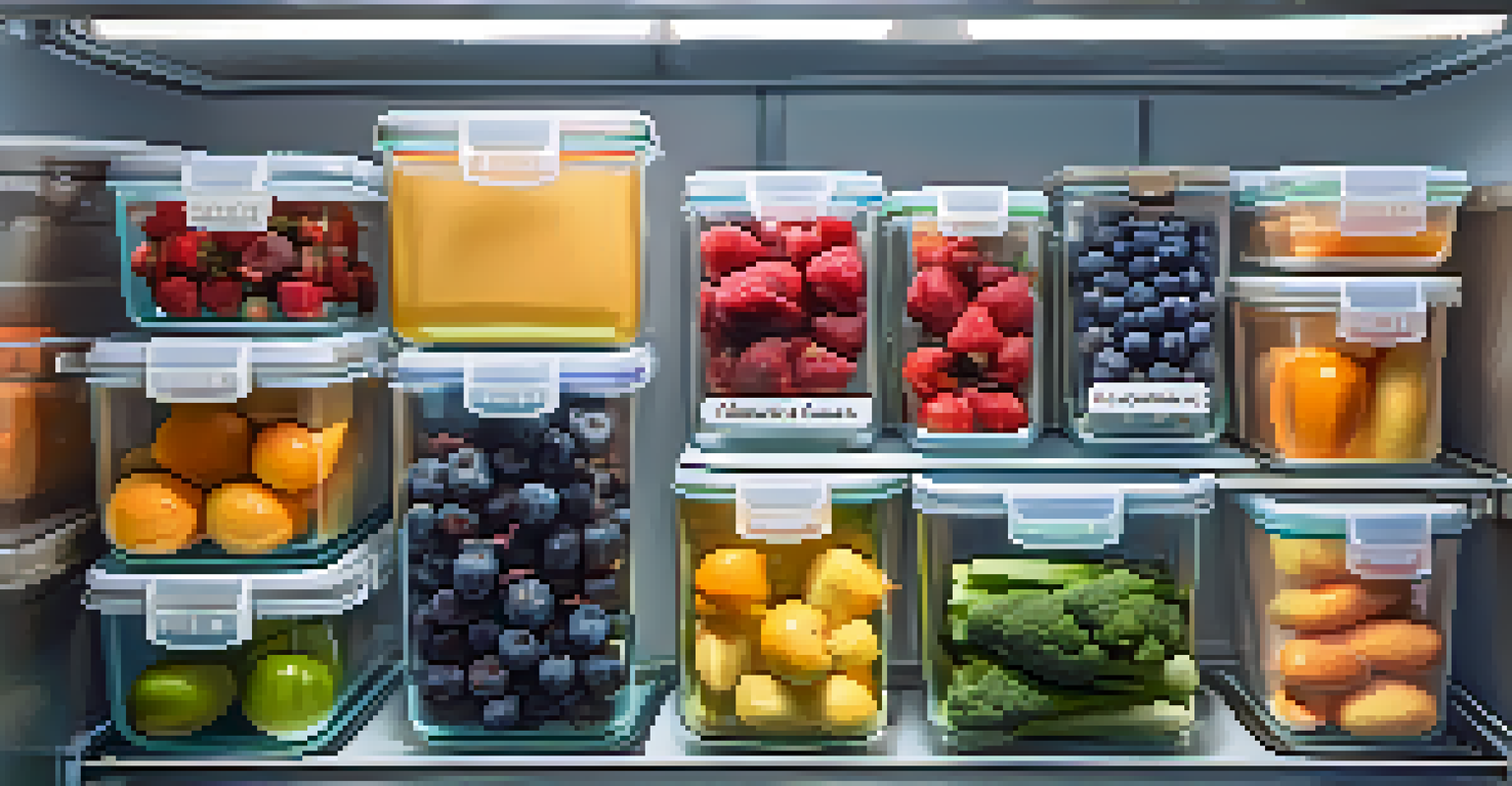Time-Saving Tips for Efficient Vegetarian Meal Prepping

Plan Your Meals for the Week Ahead
Taking a little time at the start of the week to plan your meals can save you hours later on. Write down a list of vegetarian dishes you'd like to prepare, and this will keep you focused during your grocery shopping. Meal planning helps reduce impulse buys and ensures you have all the ingredients you need on hand to whip up delicious meals.
If you fail to plan, you are planning to fail!
Consider using a template to organize your meals; this could include breakfast, lunch, dinner, and snacks. By knowing what you'll eat each day, you can easily identify what needs to be prepped and when. This not only streamlines your cooking process but also helps you maintain a balanced diet.
Moreover, don't hesitate to mix and match ingredients throughout the week. If you cook a large batch of quinoa, for example, you can use it in salads, stir-fries, or as a side dish, maximizing your prep time and minimizing waste.
Batch Cooking: Make It a Habit
Batch cooking is a game changer for anyone looking to save time in the kitchen. By preparing large quantities of staples like grains, beans, and roasted vegetables, you create a base for multiple meals. For instance, if you roast a tray of seasonal vegetables, you can use them in salads, wraps, or as toppings for grain bowls throughout the week.

Setting aside a few hours on a weekend or your day off for batch cooking can transform your weekdays. Imagine coming home after a long day and knowing you have a hearty meal waiting for you in the fridge! This can reduce stress and make healthy eating far more manageable.
Plan Meals to Save Time
Taking the time to plan your meals for the week can streamline grocery shopping and help maintain a balanced diet.
To make the most of your batch cooking, store your prepared items in clear, labeled containers. This way, you can easily see what you have ready to go, making it less likely that you'll reach for unhealthy snacks out of convenience.
Utilize Freezer-Friendly Recipes
Freezing meals is an excellent way to save time and ensure you always have something nutritious on hand. Many vegetarian dishes, like soups, stews, and curries, freeze beautifully. By preparing these meals in bulk, you can simply pop them in the freezer and heat them up whenever hunger strikes.
Good food is the foundation of genuine happiness.
When you freeze meals, make sure to portion them out for easy access. Use freezer bags or containers that are labeled with the contents and date, so you don’t forget what’s in there. This little organization tip can save you from a future mystery meal that’s been lurking in the back of your freezer!
Additionally, consider freezing ingredients like chopped herbs or vegetable scraps. You can blend herbs with a bit of oil and freeze them in ice cube trays. These cubes can add a burst of flavor to your dishes without the need for fresh herbs every time you cook.
Embrace One-Pot and Sheet Pan Meals
One-pot and sheet pan meals are fantastic for saving time and minimizing cleanup. These recipes allow you to toss all your ingredients into one pot or on one tray, and let the oven or stovetop do the work. Think of meals like a hearty vegetable stir-fry or a roasted vegetable quinoa bake; everything cooks together, bringing out delicious flavors without the hassle.
By using just one cooking vessel, you can significantly reduce the time spent washing dishes. This means you can enjoy more time relaxing or doing the things you love rather than scrubbing pots and pans. Plus, these meals often yield leftovers, which can be a lifesaver for busy weekdays.
Batch Cooking for Busy Days
Batch cooking staples like grains and vegetables allows you to prepare multiple meals in advance, reducing stress during the week.
Incorporating these types of meals into your meal prep not only saves time but also encourages creativity. You can easily switch up the vegetables, grains, and spices based on what you have on hand, ensuring variety in your diet without extra effort.
Invest in Quality Food Storage Containers
Having the right food storage containers can make a world of difference in your meal prepping journey. Look for containers that are microwave-safe, dishwasher-safe, and leak-proof to make reheating and cleaning up a breeze. Investing in a variety of sizes will also help you store everything from large salads to small snacks.
Clear containers allow you to see your food at a glance, which makes it easier to grab something healthy when you’re in a hurry. Plus, having a system for your storage—like stacking containers or using labels—can help you keep your fridge organized, preventing food waste.
Consider glass containers if you're looking for eco-friendly options. They are durable, won’t stain, and can be used in both the oven and microwave, giving you versatility in how you prepare and store your meals.
Prep Ingredients Ahead of Time
Prepping ingredients in advance can drastically cut down your cooking time during the week. Spend a little time washing, chopping, and storing vegetables so they are ready to go when you need them. Having prepped ingredients at your fingertips means you can whip up meals in a matter of minutes.
For example, you can chop onions, bell peppers, and carrots and store them in airtight containers. When it’s time to cook, simply throw them into your pan with some oil, and you have a flavorful base for many dishes. This makes it easier to stick to your healthy eating goals, even on those busy days.
Use Quick-Cooking Ingredients
Incorporating quick-cooking grains and legumes can significantly cut down on meal prep time while still providing nutritious options.
Don't overlook pantry staples either! Organizing and prepping grains, beans, and spices can streamline your cooking process. When everything is within reach, it makes the cooking experience more enjoyable and less daunting.
Incorporate Quick-Cooking Grains and Legumes
When it comes to meal prepping, choosing quick-cooking grains and legumes can save you a lot of time. Options like quinoa, couscous, or lentils cook much faster than traditional rice or dried beans. By incorporating these into your meals, you can have a hearty base ready in no time.
For instance, quinoa takes about 15 minutes to cook, and it’s packed with protein and fiber, making it a nutritional powerhouse. Similarly, canned beans can be a great shortcut; they’re ready to go and can easily be added to salads, soups, or wraps.

By choosing quicker-cooking options, you can spend less time in the kitchen while still enjoying a variety of nutritious meals throughout the week. This way, you can focus more on enjoying your food and less on the cooking process.